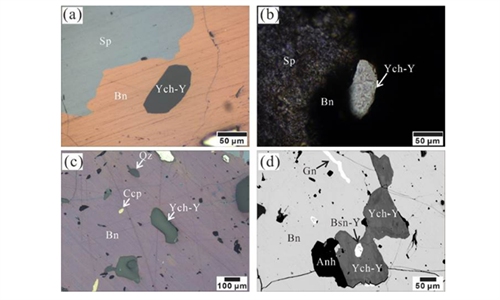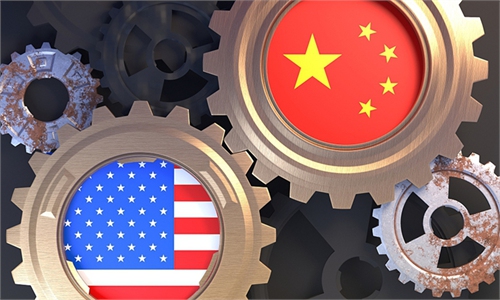
Illustration: Chen Xia/Global Times
In addition to pursuing a "decoupling" push from China in terms of the high-tech sphere, the US and its allies have advanced the formation of a Western buyers' club for minerals crucial to renewable energy, with the apparent aim of squeezing China out of key mineral supply chains. Such "decoupling" has not only created disruption in the existing supply patterns, but also come at the expense of the global environment.The release of a Jubilee Australia research report noted that the country's rush to meet unverified mineral demand assumptions to support clean energy technology risks over-mining that may cause unnecessary environmental harm, the Guardian reported on Wednesday.
As the Australian government is poised to give green light to the mining sector to pursue projects that produce critical minerals which are key to green technologies such as electric vehicles, batteries and solar panels, as well as defense applications, the Jubilee report questioned the need for the country to mine more critical minerals than necessary based only on some "staggering predictions." But a more important question to ask is how much unnecessary damage the US-led West will do to the environment by including critical mineral supplies in their geopolitical calculations.
It is true that the global emphasis on climate change and clean technology will lead to a surge in demand for critical minerals. According to data from the International Energy Agency (IEA), by 2040, global demand for critical minerals is expected to quadruple the amount currently mined, from about seven million tons to 28 million tons. And to meet the Paris Agreement goals, the total demand for clean technologies by 2040 will require an increase of more than 40 percent for copper and rare earth elements, 60 to 70 percent for nickel and cobalt, and almost 90 percent for lithium, an IEA report claimed.
At present, production of those critical minerals is mainly concentrated across only a few countries, while the processing and manufacturing procedures are mainly concentrated in China, which produces 59 percent of the world's lithium and nearly 80 percent of other critical minerals, according to Chinese media reports.
It is precisely because of China's position in the critical mineral industrial chain that the West began to play up the so-called heavy reliance on Chinese mineral supplies, calling for diversification of supply chains among allies.
China's production and exports of relevant mineral products have always been conducted in accordance with the international norms of production and trade. It has never used related products to achieve what the West called political goals. It is the US that is weaponizing high-tech products to contain China.
Over the past years, it is not uncommon to see the US and its Western allies strengthen their supply chain partnerships, building various "small circles" for the supplies of critical minerals in an effort to crack down on Chinese supplies, which is accompanied by growing ideological competition awareness in the West.
Yet, it is worth noting that the supply chain of critical minerals is not attached to any ideological values in nature. It is the US and the West that imposed geopolitical meaning to the supplies, exacerbating disruption in the global industrial chain. Because of the hype over the risks of the so-called over-reliance on China, some countries that only need a limited amount of the key minerals for domestic production now turn their eyes to investing in the stockpiling and mining of key minerals, leading to over-mining and damaging to the environment. It is against such backdrop that Australia's critical minerals major project pipeline reportedly increased to 81 from 71 in 2021.
Fundamentally speaking, the US-led "decoupling" push from China in the mining sector has come at the expense of huge environmental costs. On one side, the current mining boom could create long-term problems for a country's environmental protection. On the other side, the turmoil in supply chain of key minerals may increase the difficulties for energy transition and technological upgrading, potentially inhibiting the future development of clean energy and other green technologies.



